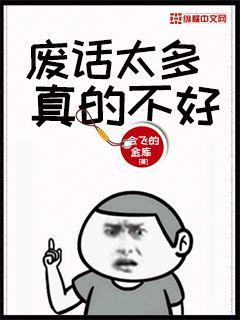
### 文章摘要
米兰球员不仅在赛场上展现出色,他们的生活中,尤其是餐桌上的美食,也是不可忽视的一部分。本文将深入探讨米兰球员如何通过精致的饮食与足球生活相结合,从营养需求、文化交流、团队凝聚到个人生活品质,揭示背后的故事和价值。
---
1、饮食与营养需求
米兰球员的日常饮食丰富多样,既符合营养学的要求,又能满足高强度训练的能量需求。他们的餐桌上充斥着哪些健康的选择?如何平衡蛋白质、碳水化合物和脂肪?
米兰的厨师如何根据球员的个体需求和比赛日程,调整餐单?这些饮食背后的科学支持如何提升球员的身体素质和抗疲劳能力?
球员们对于饮食的偏好和限制如何影响他们的表现和状态?餐桌上的菜肴反映了什么样的文化和地方特色?
2、文化交流与餐桌礼仪
米兰球员来自世界各地,他们的餐桌上不仅是食物的交汇,更是文化的碰撞。球员们如何通过共享美食,促进团队的文化融合和互动?
哪些美食代表了不同国家和地区的独特风味?米兰球员如何借助饮食,增进彼此的理解和尊重?
餐桌礼仪在米兰球员生活中扮演着怎样的角色?他们如何通过规范和习惯,维护餐桌文化的尊严和和谐?
3、团队凝聚与社交活动
在米兰球员的生活中,餐桌不仅是进食的地方,还是团队凝聚的核心。球员们如何通过共同进餐,加强团队的凝聚力和战斗力?
他们的日常生活中有哪些餐饮活动,如团队聚餐、庆祝活动等,如何通过这些活动促进团队氛围和合作精神?
米兰球员的社交圈如何通过餐桌活动扩展和巩固?饮食文化在球员们之间是如何传承和发展的?
4、个人生活品质与心理调节
米兰球员的个人生活除了训练和比赛,餐桌上的美食也是他们放松和享受的重要方式。他们如何通过精致的饮食,提升个人生活品质和幸福感?
哪些特定的食物和菜肴对于球员的心理健康和情绪管理有积极的影响?
米兰球员如何通过餐桌上的美食,调节比赛压力和身体疲劳,保持良好的竞技状态?
总结:
米兰球员在餐桌上的美食生活不仅体现了健康与营养的重要性,更展示了跨文化交流和团队精神的力量。通过食物,他们不仅填饱了肚子,更丰富了生活的色彩,彰显了足球运动背后的人文关怀和精神追求。
餐桌上的每一道菜肴都是一场文化的盛宴,每一次共进餐桌都是团队凝聚的契机。米兰球员不仅在场上奔跑,他们的餐桌上也是故事和感动的写照。
Certainly! Here's the structured article on "Optimizing Training Performance through Nutrition and Diet for Professional Athletes":
**Abstract:**
Professional athletes rely heavily on nutrition and diet to enhance their training performance. This article explores key factors that optimize their performance through dietary strategies. It examines the role of macronutrients, micronutrients, hydration, and timing of meals in maximizing athletic potential. By understanding and implementing these factors, athletes can achieve peak performance and maintain optimal health.
---
**1、Macronutrients:**
Macronutrients play a fundamental role in the diet of professional athletes, influencing energy levels, muscle recovery, and overall performance.
Athletes typically require a balanced intake of carbohydrates, proteins, and fats to meet their energy demands and support muscle repair.
Carbohydrates serve as a primary fuel source, especially during high-intensity activities, emphasizing the importance of adequate intake and timing to sustain performance.
1、Proteins:
Proteins are essential for muscle repair and growth, with athletes needing slightly higher amounts to recover effectively from training sessions.
Timing protein consumption around workouts is crucial for maximizing muscle synthesis and adaptation to exercise-induced stress.
A variety of protein sources, including lean meats, dairy, and plant-based options, offer athletes flexibility in meeting their nutritional needs.
2、Fats:
Healthy fats contribute to sustained energy levels and support overall health in athletes, emphasizing sources like nuts, seeds, and fatty fish.
A balanced intake of omega-3 and omega-6 fatty acids aids in reducing inflammation and optimizing recovery post-training.
Adjusting fat intake based on training intensity and individual metabolic needs helps athletes maintain optimal body composition and performance.
3、Carbohydrates:
Carbohydrates are critical for replenishing glycogen stores and providing quick energy during intense exercise sessions.
Choosing complex carbohydrates such as whole grains and vegetables ensures sustained energy release and supports prolonged athletic performance.
Strategic carb-loading before competitions or high-demand periods helps athletes maximize glycogen storage and enhance endurance.
---
**2、Micronutrients:**
Beyond macronutrients, micronutrients are essential for maintaining overall health, supporting immune function, and optimizing athletic performance.
Athletes require adequate intake of vitamins and minerals to support physiological processes, including bone health, oxygen transport, and muscle contraction.
Key micronutrients such as iron, calcium, vitamin D, and antioxidants play crucial roles in reducing the risk of injury and illness among athletes.
1、Iron and Calcium:
Iron is vital for oxygen transport and energy production, particularly significant for endurance athletes to prevent fatigue and optimize performance.
Calcium supports bone health and muscle function, essential for maintaining skeletal integrity and reducing the risk of stress fractures.
Ensuring sufficient intake of these minerals through diet and, if necessary, supplementation helps athletes meet their unique nutritional demands.
2、Vitamins and Antioxidants:
Vitamins such as vitamin D, C, and E contribute to immune function and recovery, aiding in the repair of muscle tissue and reducing oxidative stress.
Antioxidants from fruits, vegetables, and nuts help mitigate exercise-induced inflammation and support cellular repair processes post-exercise.
Strategies to incorporate a diverse range of micronutrient-rich foods into an athlete’s diet promote overall health and optimize training adaptations.
3、Hydration:
Hydration is critical for maintaining performance and preventing dehydration-related complications during training and competition.
Athletes should monitor fluid intake to replace losses through sweat, adjusting consumption based on environmental conditions and individual sweat rates.
Optimal hydration supports thermoregulation, nutrient transport, and cognitive function, enhancing overall athletic performance and recovery.
---
**3、Timing of Meals:**
The timing of meals and nutrient intake around training sessions is crucial for optimizing energy availability, promoting recovery, and supporting adaptation to exercise stress.
Strategic meal timing helps athletes maximize glycogen storage, enhance muscle protein synthesis, and minimize muscle breakdown.
Pre-exercise nutrition focuses on providing adequate carbohydrates for fuel and minimizing gastrointestinal distress during workouts.
1、Pre-Exercise Nutrition:
Consuming a balanced meal or snack containing carbohydrates and a moderate amount of protein 2-4 hours before exercise provides sustained energy and supports muscle function.
Hydration before exercise ensures adequate fluid balance and enhances thermoregulation during physical exertion, optimizing performance and reducing the risk of dehydration.
2、Post-Exercise Recovery:
Immediately following exercise, consuming a combination of carbohydrates and proteins within the first 30 minutes to 2 hours supports glycogen replenishment and muscle repair.
Timing protein intake post-exercise stimulates muscle protein synthesis, facilitating recovery and adaptation to training-induced stress.
Incorporating micronutrients and fluids into post-exercise meals aids in rehydration, replenishment of electrolytes, and overall recovery.
3、Nutrient Timing Strategies:
Strategically timing meals and snacks throughout the day maintains stable blood sugar levels and sustains energy for consistent training performance.
Adjusting nutrient intake based on training volume and intensity helps athletes meet their energy demands and achieve optimal nutrient timing for enhanced performance.
Individualized nutrition plans tailored to training schedules and performance goals optimize nutrient timing strategies, supporting long-term athletic success.
---
**4、Conclusion:**
Optimizing training performance through nutrition and diet involves a comprehensive approach focusing on macronutrients, micronutrients, hydration, and meal timing.
By understanding the role of each component and implementing evidence-based strategies, athletes can enhance performance, support recovery, and maintain overall health.
Continued research and personalized nutrition plans are essential to meet the unique needs of professional athletes and maximize their athletic potential.
Overall, integrating these key factors into a structured nutrition plan empowers athletes to achieve peak performance and excel in their respective sports.
文章摘要:本文深入探讨了足球界的巨星与传奇球员之间的精彩对话。通过现役球员与退役名宿之间的交流,展示了他们在比赛中的智慧、技巧和战术洞见。分析了这些对话如何传承足球文化,影响新一代球员的成长,以及对球迷和全球足球社区的深远影响。
1、现役巨星的经验传承
现役球员如何从传奇名宿那里学习和汲取经验,促进他们在场上的进步和发展?这种跨代交流如何影响球队的战术部署和整体表现?现役巨星如何平衡自身风光背后的压力与责任?
传奇球员通过分享自己的职业经历和技术秘诀,帮助现役球员更好地理解比赛的复杂性和变化,从而提升整体团队的竞争力。
这种经验的传承不仅仅是技术层面的提升,更是精神层面的激励,激发现役球员在困难时刻的顽强斗志。
2、战术与策略的深度讨论
巨星与名宿之间如何就战术和比赛策略进行深入讨论?他们如何根据不同对手和比赛场景调整战术?这种交流如何影响球队的战术灵活性和应变能力?
讨论中涉及的战术细节和技术要点,展示了足球比赛背后的复杂性和智慧,揭示了成功球队背后的战术秘密。
这些讨论不仅限于赛前战术布置,还包括场上的即时调整和团队合作,体现了足球比赛中智慧与战略的重要性。
3、文化传承与足球教育
传奇名宿如何通过自己的经验和故事,传承足球文化和价值观给新一代球员?这种文化传承如何影响球员的成长和职业道路选择?
足球教育的角度看待这种传承,如何培养出更多具有领导力和影响力的球员?名宿的故事如何激励年轻球员追求卓越和超越自我?
这种文化传承不仅仅是技术和战术的传授,更是品格和精神的培养,塑造出真正的足球领袖。
4、对话背后的社会影响
巨星与名宿之间的对话如何影响球迷和全球足球社区?他们的言论如何引发社会对足球运动的讨论和关注?
这种影响如何推动足球文化的传播和全球足球产业的发展?对话中体现的价值观和态度如何影响青少年球员的行为和思维方式?
足球作为全球最受欢迎的运动之一,其背后所传递的信息和价值观对社会的影响是不可忽视的。
总结:
足球巨星与传奇名宿之间的精彩对话不仅仅是技术和战术的交流,更是一种文化和价值观的传承。这种跨越时空的对话,深刻影响着现役球员的成长和团队的表现,同时也激励和影响着全球数百万足球爱好者。通过这些对话,我们看到了足球运动的真正魅力和其在社会中的深远影响。
足球界的巨星和传奇名宿,通过他们的对话,不仅仅在球场上创造历史,更在文化和社会层面留下了不可磨灭的印记。